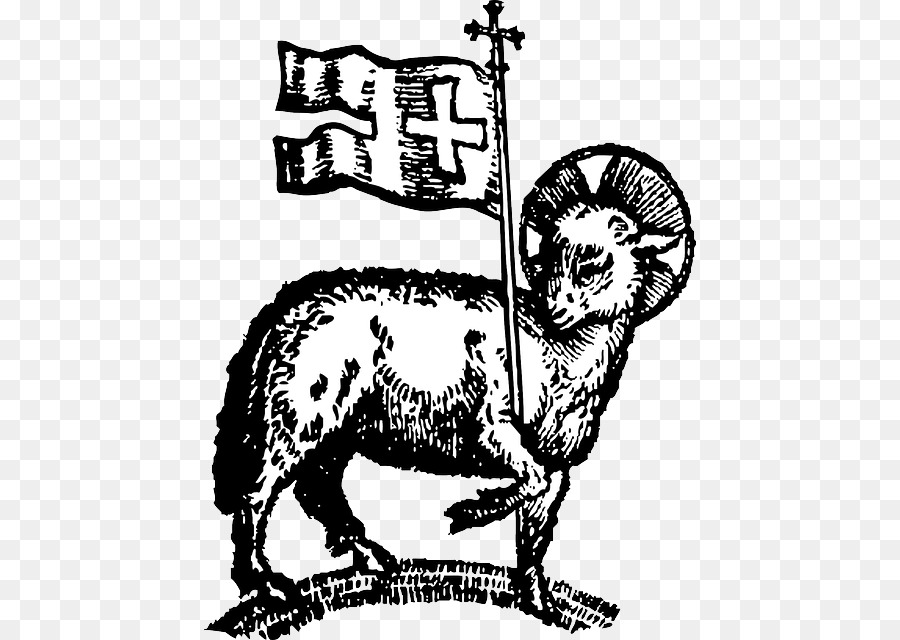"Above All Else a Sacrifice"
The celebration and offering of the Holy Eucharist is called "the Memorial of the Lord" and "the Memorial of His Passion". All other memorials, such as Brock's Monument, are memorials of the life of someone who is dead. This Memorial is the Memorial of the DEATH of Someone Who is ALIVE!
It is not a mere reminder or portrayal of His Passion and His Person. The two major images of Christ in this church, depict Him and remind us of His Passion. But in the Eucharistic Sacrifice, He Who is alive and risen comes and RE-PRESENTS the Sacrifice of His Death on the Cross.
The Lamb of God shed His Precious Blood for all people, so anybody can say "Almighty Father, remember the suffering of Your Son, remember how He poured out His Divine Blood for me, and have mercy on me!"
The baptized have been grafted onto the True Vine. They belong to Christ and Christ belongs to them. They are children of God through Faith. They are a race of priests, and belong to the Kingdom of God on earth. Therefore they can not only "remind" the Lord of the saving work of His Son, they can OFFER the Blood. And when they do, they are offering the infinitely precious Blood.
A finite person, a created, limited person, such as you and me, can offer the infinite Blood, the "acceptable sacrifice that brings salvation to the whole word".
BUT IN THE MASS...
But in the Mass Christ our Saviour becomes present and He, an infinite Divine Person, offers His Death, offers His love and obedience, offers His Precious Blood. The all holy, all innocent Lamb of God offers again His one death on Calvary. He uses the priest, but it is Himself.
* * * * *
Teaching of Christ through His Church:
"We believe that the Mass, celebrated by the priest representing the person of Christ by virtue of the power received through the Sacrament of Orders, and offered by him in the name of Christ and the members of His Mystical Body, is the sacrifice of Calvary rendered sacramentally present on our altars." (Credo of Pope Saint Paul VI)
"At the Last Supper, on the night when He was betrayed, our Saviour instituted the Eucharistic Sacrifice of His Body and Blood. He did this in order to perpetuate the Sacrifice of the Cross throughout the centuries until He should come again, and so to entrust to His beloved Spouse, the Church, a memorial of His Death and Resurrection: a sacrament of love, a sign of unity, a bond of charity, a paschal banquet in which Christ is eaten, the mind is filled with grace, and a pledge of future glory is given to us.'" (Paul VI quotes Vatican II)
Re-enactment at Heart of Doctrine
The heart and core of the doctrine, is that, by means of the Mystery of the Eucharist, the Sacrifice of the Cross which was once carried out on Calvary is re-enacted in wonderful fashion and is constantly recalled, and its saving power is applied to the forgiving of the sins we commit each day.
Just as Moses made the Old Testament sacred with the blood of calves, so too Christ the Lord took the New Testament or Covenant, of which He is the Mediator, and made it sacred through His own Blood, in instituting the mystery of the Eucharist. For, as the Evangelists narrate, at the Last Supper "He took bread, and blessed and broke it, and gave it to them, saying, This is My Body, given for you; do this for a commemoration of Me. And so with the cup, when supper was ended, This cup, he said, is the new testament, in my Blood which is to be shed for you." And by asking and commanding the Apostles to do this in memory of Him, He made clear that He wanted it to be forever repeated. This intention of Christ was faithfully carried out by the primitive Church through her adherence to the teaching of the Apostles and through her gatherings to celebrate the Eucharistic Sacrifice. As St. Luke is careful to point out, "They occupied themselves continually with the Apostles' teaching, their fellowship in the breaking of bread, and the fixed times of prayer." The faithful used to derive such spiritual fervour from this practice that it was said of them that "there was one heart and soul in all the company of the believers." (16)
Paul VI, Mysterium Fidei

No comments:
Post a Comment